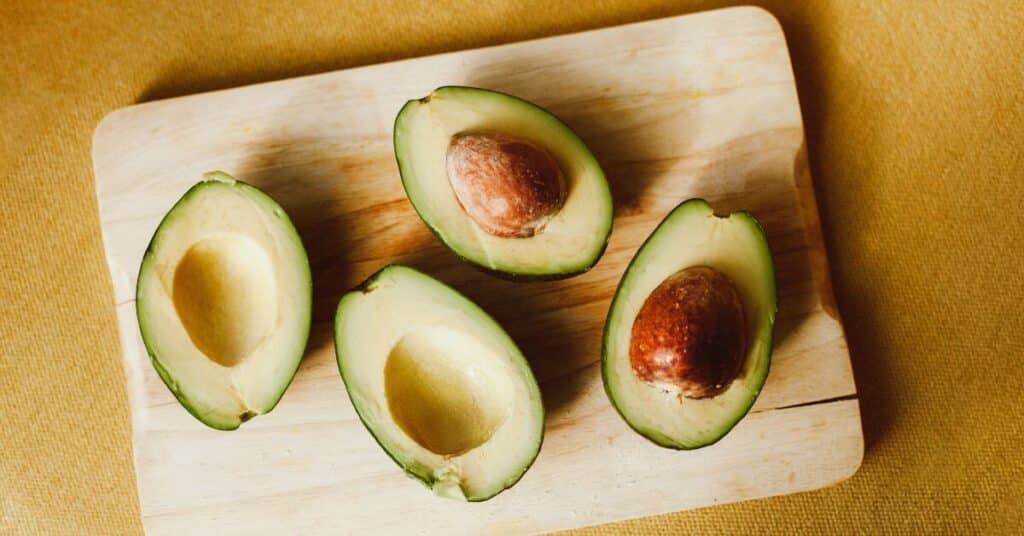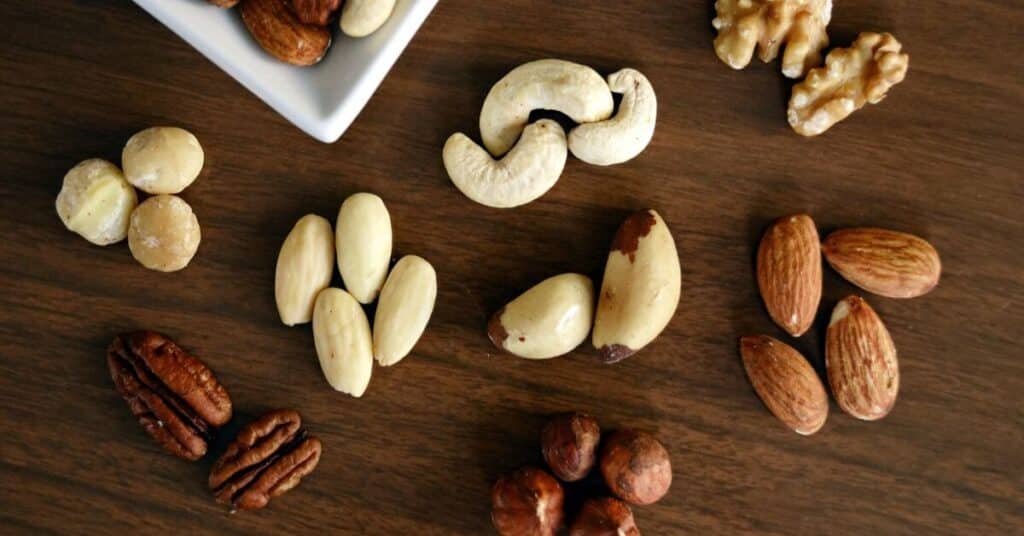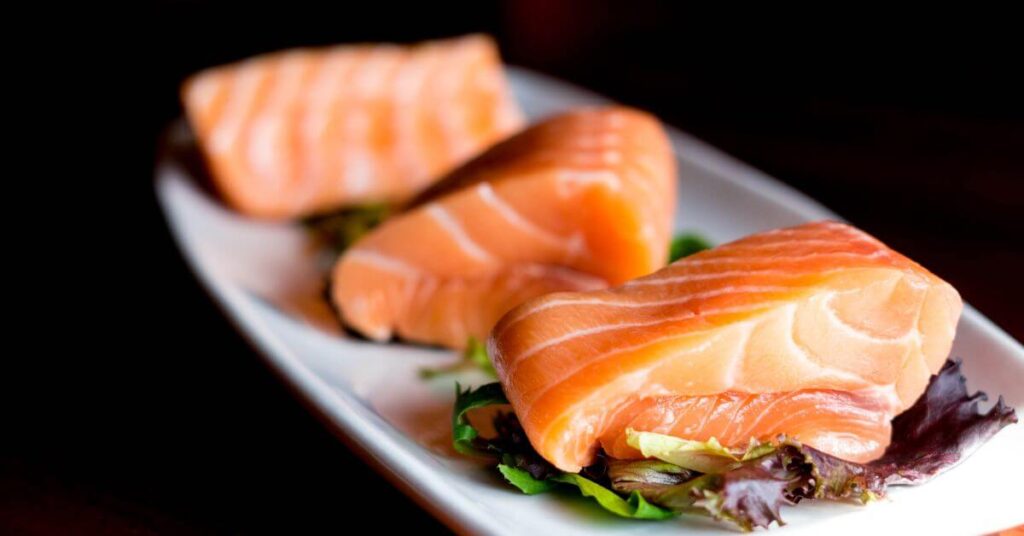Have you been feeling tired or out of sorts lately? I keep hearing about mood changes from my clients and friends. We are usually spoiled by sunshine in California but June gloom has come early this year. And with these gray skies, people are experiencing both physical and emotional changes. Oh Mr. Sun… We need you! While we can’t control the weather, we can control our food choices. And food, like exercise, can create endorphins. So read on to find out the ten common foods that will help you increase the happy hormones in your body!
Yes, food can make us feel good. Food causes the release of endorphins and those messages are sent throughout the body. Here is a list of foods to incorporate into your body, boost the happy hormones, and help you feel good while the skies are gray.
Ten Foods to Increase Happy Hormones in Your Body

1. Water
My go-to magic pill. Hydration is necessary for bodily function and mood regulation.

2. Cherry Tomatoes
This variety of tomato just screams happy! The pop in your mouth is like a firework of flavor and nutrition. This fruit is loaded with lycopene which has been linked with reducing depression.

3 & 4. Pineapple and Kiwi
These fruits are extra sweet and they will make you feel happy too. But, it’s not from their sugar content. It is due to their natural dose of serotonin.

5. Asparagus
This spring vegetable is loaded with folate and tryptophan. Deficiencies in B vitamins like folate are common in individuals who are experiencing mood changes and tryptophan boosts the release of serotonin. By increasing folate levels and serotonin production, you will get an instant boost in mood.

6. Spinach
Magnesium, a nutrient found in these leafy greens, provides a similar function in your body as your good old friend, the anti-depressant. If you don’t like spinach, try another leafy green to get a daily dose of magnesium.

7. Avocado
This fruit is also packed with B vitamins which helps with serotonin production. Beyond the B vitamins, this plant food is loaded with good quality fats. Fat is important for overall cell health and brain function. The key to balancing anyone’s mood is a well-fed brain.

8. All Nuts and Seeds
Yes, pick any variety! Nuts and seeds are loaded with antioxidants.

9. Salmon
Like the good old avocado, salmon will contribute healthy fats like omega 3 fatty acids, mood boosting B vitamins, and serotonin’s friend tryptophan. This three-pronged approach is key to overall brain health.

10. Dark Chocolate
This is the one case where something sweet may serve as more than just a quick fix. Dark chocolate of 80% or more will promote mood regulation via N-acylethanolamine and endorphin production.
So to recap, the 10 best foods to help you increase the happy hormones in your body naturally are:
- Water
- Cherry tomatoes
- Pineapple
- Kiwi
- Asparagus
- Spinach
- Avocado
- Nuts and seeds
- Salmon
- Dark chocolate
What foods should you avoid when you’re experiencing depression?
There are probably foods you think of when you think of what makes you feel good immediately. These instantaneous mood elevators include carbohydrates, alcohol and caffeine. They only help in the short term and offer temporary band aid results, and some can even hurt in the long term.

The long term goal when choosing foods to increase happy hormones in our bodies is to nourish the gut and the mind. When analyzing diet, dietitians are looking to promote gut health and macro and micronutrient absorption. It is essential to make sure that there is communication via the gut-brain axis. A strong and viable gut provides messages via this axis to the brain leading to a balanced mood.
That leads us to the question: How do I ensure I have a strong and viable gut? Besides the 10 simple ingredients listed above, there are 4 dietary goals that everyone should consider on a daily basis.
4 Dietary Goals to Increase Gut Health and Happy Hormones in Your Body
- Eat whole foods. Focus on the perimeter of the supermarket and avoid the center aisles that are stocked with packaged and processed foods.
- Eat vegetables! These colorful ingredients are your body’s natural medicine.
- Fiber, fiber, fiber! Are you consuming at least 25 grams of fiber daily. Fiber comes in a variety of forms including fruit, vegetables, whole grains, and legumes.
- Eat prebiotic foods to help promote the natural growth and maintenance of probiotics. Easily obtained prebiotic sources include garlic, onion, leek, asparagus, banana, apple, and flaxseed.

Understanding Your Micronutrients and Gut Health
Check your micronutrient levels. It is important to know if you have any nutritional deficiencies. These deficiencies may be exacerbating your mood changes. Comprehensive nutrition panels are available. The key vitamins and minerals to review include:
- Vitamin D
- Omega 3
- Magnesium
- Zinc
- Vitamins B6, B9 and B12
- Iron
- Selenium
Finally, if you are experiencing mood changes as well as gastrointestinal symptoms, an analysis of your gut may be warranted.
In conclusion
Take home message: diet plays a significant role in your overall mental health. The good news is food can actually help you increase the happy hormones in your body! There is a lot we can do with diet; however, we may need to take a closer look at deficiencies and gut health to achieve the best results. A functional dietitian can help you implement changes and experience mood balance whether there’s rain or sunshine. If you’re interested in discussing your situation, reach out.

